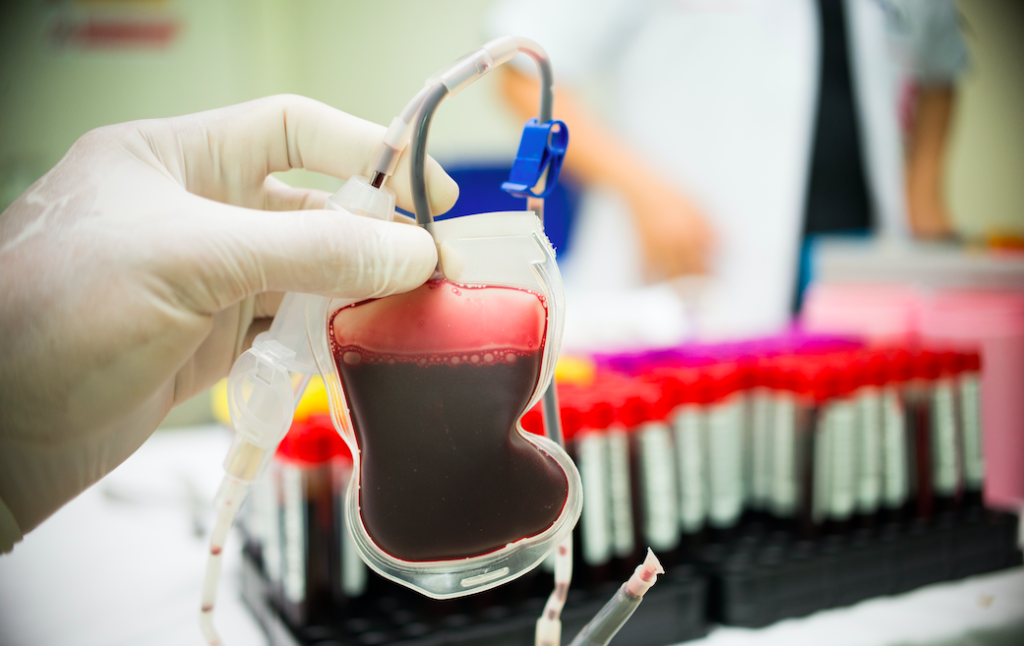On Friday, GLAAD responded to the U.S. Food and Drug Administration (FDA) after it has stated that it will not be lifting the ban on gay men, bisexual men, and other LGBTQ people from donating blood during the COVID-19 crisis.
In a statement to the Washington Blade last week, a spokesperson from the FDA stated: “At this time, FDA’s recommendations regarding blood donor deferral for men who have sex with men have not changed, but we will continue to reevaluate the situation as the outbreak progresses.”
The spokesperson continued, “FDA is aware there has been a dramatic reduction in blood and plasma donations around the country. The agency is working with the blood banking and source plasma industries to encourage healthy people who wish to help to donate blood. People who donate blood are like those people working in a critical infrastructure industry.”
“As the U.S. Surgeon General expresses clear urgency for Americans to donate blood, the FDA is choosing to uphold a laughable and discriminatory policy that hinders so many healthy Americans from doing so,” said GLAAD President & CEO Sarah Kate Ellis. “There are thousands of healthy gay and bisexual men, as well as other LGBTQ people that this policy affects, who are willing and wanting to donate blood during this time. By relying on stigma rather than science, the FDA is not just harming members of the LGBTQ community, but all Americans.”
On Thursday, U.S. Senator Tammy Baldwin led a group of Senators, including Elizabeth Warren, Bernie Sanders, Kamala Harris, Cory Booker and more, in releasing a letter to FDA Commissioner Dr. Stephen Hahn that raises concerns about the FDA’s discriminatory blood donation policies and urges the administration to make the necessary changes to help save lives.
In the letter, the Senators write: “We write to express our concern with the Food and Drug Administration’s (FDA) discriminatory blood donor deferral policy for men who have sex with men (MSM), particularly in the midst of a nationwide shortage of donated blood and blood products spurred by the COVID-19 pandemic. We must take every possible step to secure our nation’s blood supply in this critical time, and in order to do so, we need to shift away from antiquated and stigmatizing donation policies to ones that are scientifically sound, based on individual risk, and inclusive of all potential healthy blood donors.”
The Senators conclude, “In light of this shortage, we urge you to swiftly update blood donor deferral policies in favor of ones that are grounded in science, are based on individual risk factors, do not unfairly single out one group of individuals, and allow all healthy Americans to donate. We strongly encourage you to consider this critical solution as you work to develop a comprehensive response to the COVID-19 outbreak and ensure that Americans have access to life-saving blood transfusions.”
Read the full letter here.
Last week, GLAAD President & CEO Sarah Kate Ellis spoke out about the ban following the White House Coronavirus Task Force press conference, in which U.S. Surgeon General Jerome M. Adams urged healthy Americans to give blood during the COVID-19 crisis.
The antiquated ban that still prevents gay and bisexual men, and men who have sex with men from donating blood must be immediately lifted by the @US_FDA. https://t.co/cPpHLEbTAF
— Sarah Kate Ellis (@sarahkateellis) March 19, 2020
Last week, GLAAD also launched a petition urging the FDA to lift the ban, which has now garnered over 10,000 signatures. Celebrities Sam Smith and Michelle Visage both helped to share GLAAD’s petition on social media. Click here to sign the petition.
As it currently stands, the FDA enforces that men who have sex with men cannot donate blood unless they have abstained from sex for 12 months. This policy also affects other members of the LGBTQ population, as well as women who have sex with men who have sex with men.
Leading medical organizations have debunked the ban for years. The American Public Health Association has stated that the current ban “is not based in science but appears to be modeled after other countries’ choices and fears.” The American Red Cross has also spoken out, noting that “blood donation eligibility should not be determined by methods that are based upon sexual orientation.”
A 2014 study by the Williams Institute estimated that if the ban were to be lifted, an additional 360,000 men would likely donate, which could help save the lives of more than a million people.













